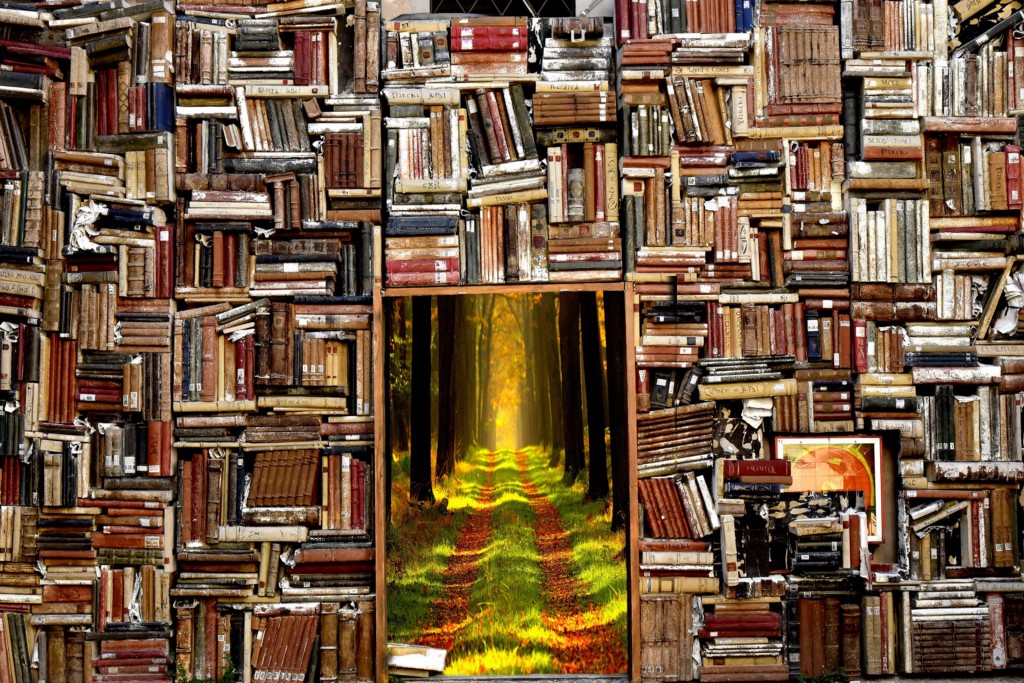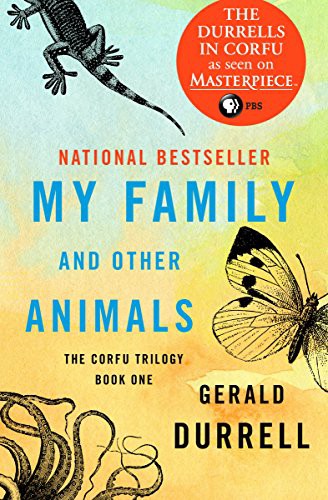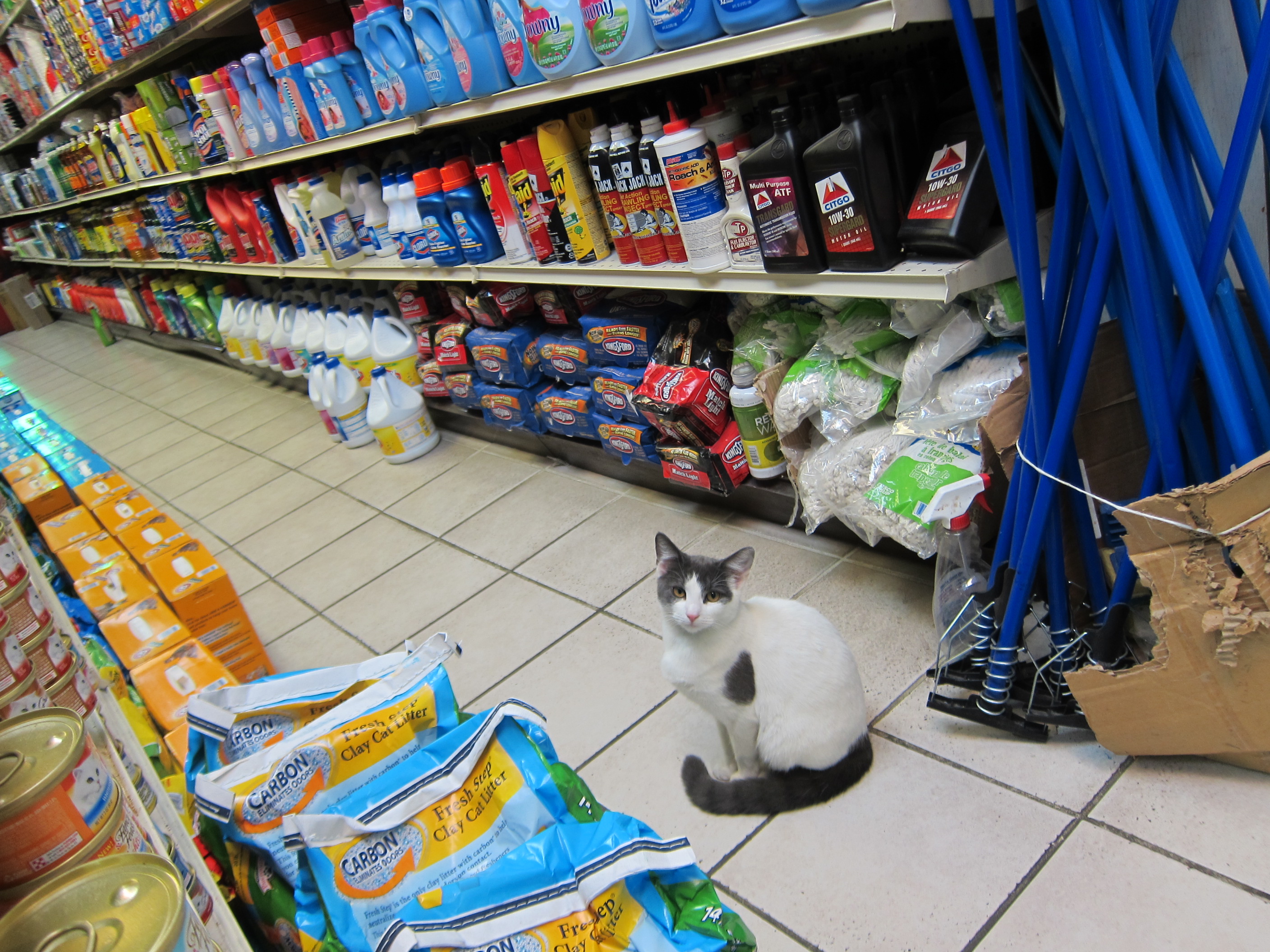Novel Gazing
Through Books, I Learned to Love the Natural World I Never Saw
Surrounded by concrete and desert, I fed my curiosity about plants and animals with my favorite novel

Novel Gazing is Electric Literature’s personal essay series about the way reading shapes our lives. This time, we asked: What’s a book that made you fall in love?
I once painted a half-shell of coriander seed into a ladybug beetle and pretended it was my pet. I placed it on the leaf of a potted plant, left it alone for a while, then came back, moved it onto another leaf and left it alone again. I did this for a few days, and I remember adults cooing over how sweet the beetle was, or how clever it was for me to have looked at a seed and seen an animal. I remember feeling small, sorry for myself, and quite silly. Despite my best efforts, I couldn’t trick myself with the fiction I had created: the beetle was on a bottom leaf in the morning, and now it’s up on top, it must be alive, it must be the kind of magic that only works when you’re not looking.
I grew up in Dubai, which is hard on a child with an imagination. I often describe my world as one of concrete boxes — the climate was nearly always too hot to explore outdoors, so I never played more than a few meters away from air conditioning, sealed windows, and paved floors. Not much grew that was not planted and obsessively watered. Wet soil would desiccate within a matter of hours of sun. Animals were city-hardy, the sort that stole from trash cans and lipped from condensation dripping off air conditioning boxes, or the sort that lived in under sinks and within the walls.
I read, wildly, overcompensating for my uninspired surroundings. I took everything I encountered in books for literal truth. If I were a city person — and a desert city person at that — I was also a woodsman, a flower fairy, a dragon tamer, a dolphin. If I read, I was alive.
Along came a boy.
He was untameably curious and, when I first met him, he just happened to have discovered a mother scorpion in the back of his garden, carrying dozens of babies on her back — each one a perfect, miniature reproduction of its parent, from pincers to venom-tipped tail. I’d never seen such a remarkable thing before, and neither had the boy. Enthralled with what he’d found, he decided to catch the mother and her babies and bring them home in a matchbox to learn more about them. Lunch was served, the boy’s family gathered, and the matchbox temporarily forgotten. Eventually, the boy’s older brother rummaged about for a cigarette and matches. Of course, he picked up the wrong matchbox. Of course, the scorpion and her babies got out. In the pandemonium that ensued, of course, the family dog bit the cook on the ankle.
The first time I read this story, I laughed out loud — in the middle of an English comprehension test at school. It was excerpted from the loosely autobiographical novel, My Family and Other Animals, by Gerald Durrell, an account of young Gerry Durrell’s life on the Greek island of Corfu, some years before World War II. I was a preteen when I read the story, around the same age as Gerry in the novel. I remember making a note of the book’s title, one of the only times I’ve learned something of value from a school test. I hunted down a copy of the book, and it remains one of my most treasured companions.
My Family is equal parts a comic retelling of a family of eccentrics and a love letter to the Mediterranean wilds of Corfu. Gerry’s widowed mother moves her family from England to escape the dreary weather, and tries her best to keep calm with gardening and experimental feasts while her children convert the rest of their new home in service to their divergent passions. Gerry’s older siblings include an aspiring actress, a huntsman in training, and a long-suffering novelist — the later-famous Lawrence Durrell. The family’s histrionics over the course of the book include inadvisable Gothic romances, guns going off at odd hours of the night, and hosting guests of delicate, excitable dispositions. Once, a night of drunkenness nearly leads to a bed nearly catching fire, occupant included.
Gerry, for his part, brings animals, alive and dead, into the family fold. Apart from scorpions, the Durrell family plays reluctant host to a pair of magpies, a tortoise, a gull, several dogs, terrapins, an owl, and water snakes, to name a few. His room contains birds’ nests, interesting shells, specimen jars teeming with ditch-water invertebrates, pinned insect collections, and a badly taxidermied bat. Despite their misgivings about turning the homestead into a menagerie, the family encourage their precocious youngest in his inquiries, arranging the odd tutor here and there to guide the boy, but otherwise allowing him to roam the island unfettered.
Thus, we experience Corfu through the unfiltered lens of a child scientist. Gerald Durrell would go on to become a naturalist and zookeeper, but his early academic training is enviously free of such mundanities as classrooms and examinations. Gerry rambles from tidepools to hilltops, climbs trees, pokes in ditches and hollows, and rows a rotund, homemade boat around the island’s shore. He learns Greek by befriending neighbors and tradesfolk. He learns about animal diets and relationships, hunting and hiding behaviors, anatomy and locomotion through obsessive observation. He collects, dissects, preserves, and raises animals purely out of curiosity and wonderment.
Oh, to be so bold as to love a creature down to its cellular workings and up and out to the very limits of its habitat! I didn’t know it was possible. Or rather, I didn’t know it was possible in real life. Durrell’s book, a novelized nonfiction, suggested to me that it was hardly eccentric to be the sort of child who would make friends with a housefly in a classroom, just to watch it sponge sweat off your skin, just so you could study how its tongue worked. Or that if you find a baby bat fallen from a light fixture in a stairwell, it’s perfectly normal not to squeal in horror, but to pick it up and wonder how to nurse it back to health.
By Gerry’s example, I gave myself sanction to be a sort of naturalist even in my land of limited resources. Dubai’s naturally arid climate does not support a great diversity of species, but humans cannot settle in places that don’t support some kind of life. I studied the cracks in walls and pavements, and poked around in hedgerows and potted plants. I practiced love for ants and feral cats, the corpses of geckos and fallen feathers. I kept guppies to watch them birth live young. I kept a snail rescued from an orchid imported from Thailand. I tried to raise a hawk moth caterpillar on the leaves of the bush I found it crawling upon. I killed it, because I was still learning.
By Gerry’s example, I gave myself sanction to be a sort of naturalist even in my land of limited resources.
Midsummers in Dubai, surface temperatures hot enough to fry eggs, I’d return to My Family and Other Animals as a vacationer does, fleeing bad weather for better climes, ready to dip my toes in sea water and comb field grasses for beetles. I considered Gerry a dear friend, a compatriot who understood that entertainment and enchantment isn’t manufactured but found, uncontrolled and unheeding of an audience, wherever an animal makes a burrow or disembowels its prey, wherever there is water, and light, and a little space to breathe. I’ve had many fantasies growing up, but none so poignant as that of living in the real world, a world made vivid in Durrell’s writing, a world in which I coexisted with the stuff our collective mythologies — beasts that flew, that leapt, beasts that slithered and dissolved into the sea.
In a continuing trend, more of us will grow up in urban environments in the decades to come, and more of what we consider wild and alive and non-construct will exist on the periphery of our daily lives, so alien as to be unintelligible. Yet nature persists in the green spaces of our gardens and our city parks. It builds its nests above our air conditioning units and encrusts the plumbing leading out of our homes. It thrives under our fingernails and upon our skin. Every so often, a hawk moth will alight above the door jamb and we must pause and take in its mottled wings, its inscrutable eyes, the aerodynamic weight of its body. Every blue moon, a nightjar will take rest on the balcony, trying to look like a tree stump protruding from the metal railing, and we must linger behind the curtains and watch it sleep.
Nature persists in books. There’s a particular hypnosis that occurs when reading that I think is very similar to that which occurs while watching an animal go about its business. It’s a state of empathy — you’re imagining yourself through the eyes of a character in the book. In the woods, in a city, you spy an animal, and you’re imagining yourself with six legs, with fins, with a beak.
There’s a particular hypnosis that occurs when reading that I think is very similar to that which occurs while watching an animal go about its business.
Durrell’s book taught me that the written word and the natural world coexisted and kept each other alive. Since his lifetime, and especially so in mine, I fear the loss that we are creating through ecosystem destruction. I fear our loss of empathy. How can we feel what we do not experience? How can we love what we do not know? Nature is a map we’ve torn up, and we’ve lost so many pieces. When we put it back together again, what should we scrawl in the empty spaces? Here were komodo dragons. Dodos. A thousand species of rainforest frogs. A million species of solitary bees.
Those who know me as an adult would not be surprised that I collect animal bones and unusually shaped seeds out of compulsion. Or that I keep tadpoles in a small tank on my bookshelf. That there are dozens of iridescent insects and one sadly dead hummingbird in my freezer, that a tree appears in every third poem I’ve written, or that I wear a magnifying loupe around my neck when I’m out about town, in case of lichens. I do it to pay homage to childhood, to a universal spirit of inquiry so often quashed in children before it can take root. I do it to affirm that it is possible, necessary even, to bear witness to this world we’re given, where none of us is alive alone.









